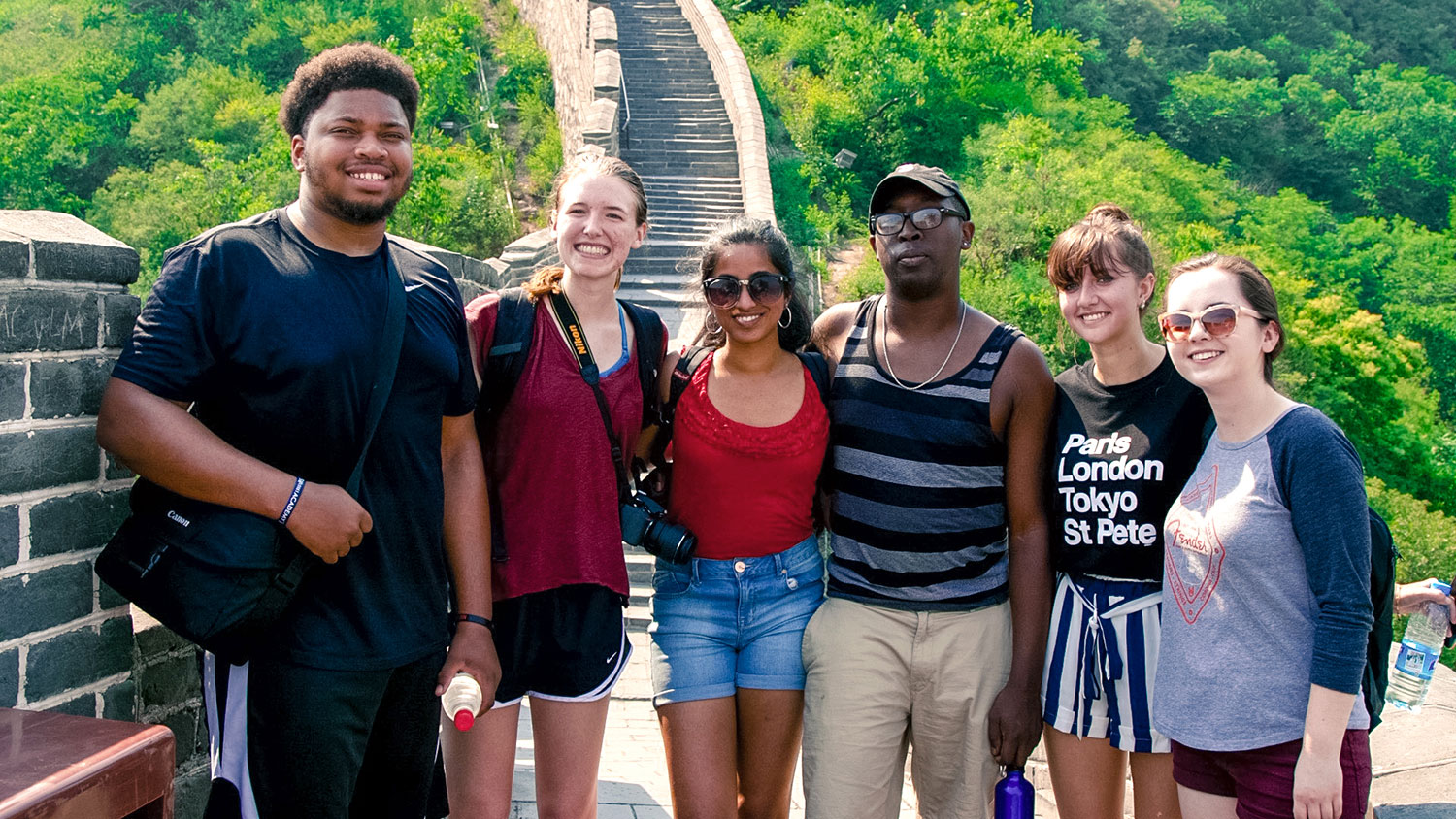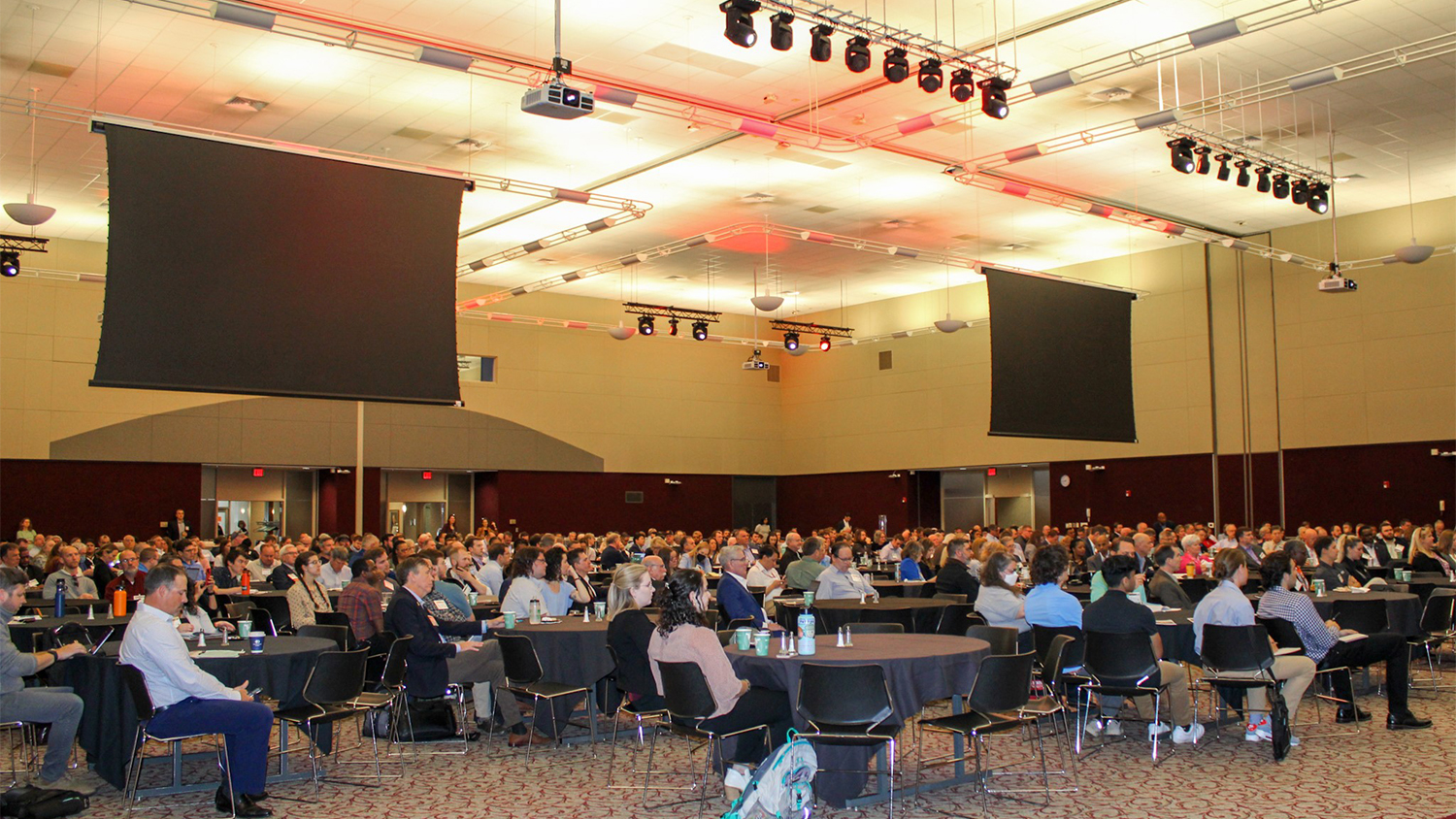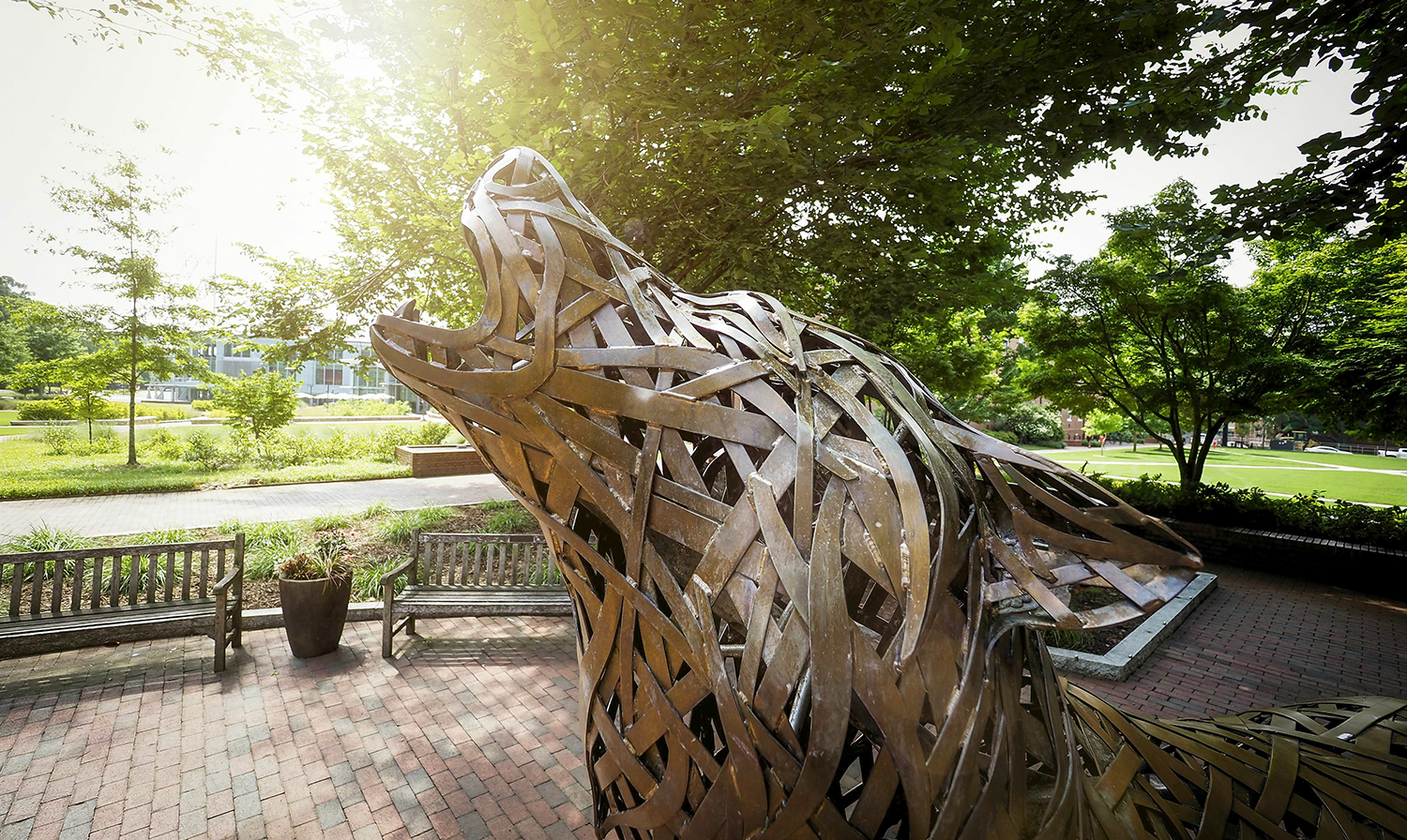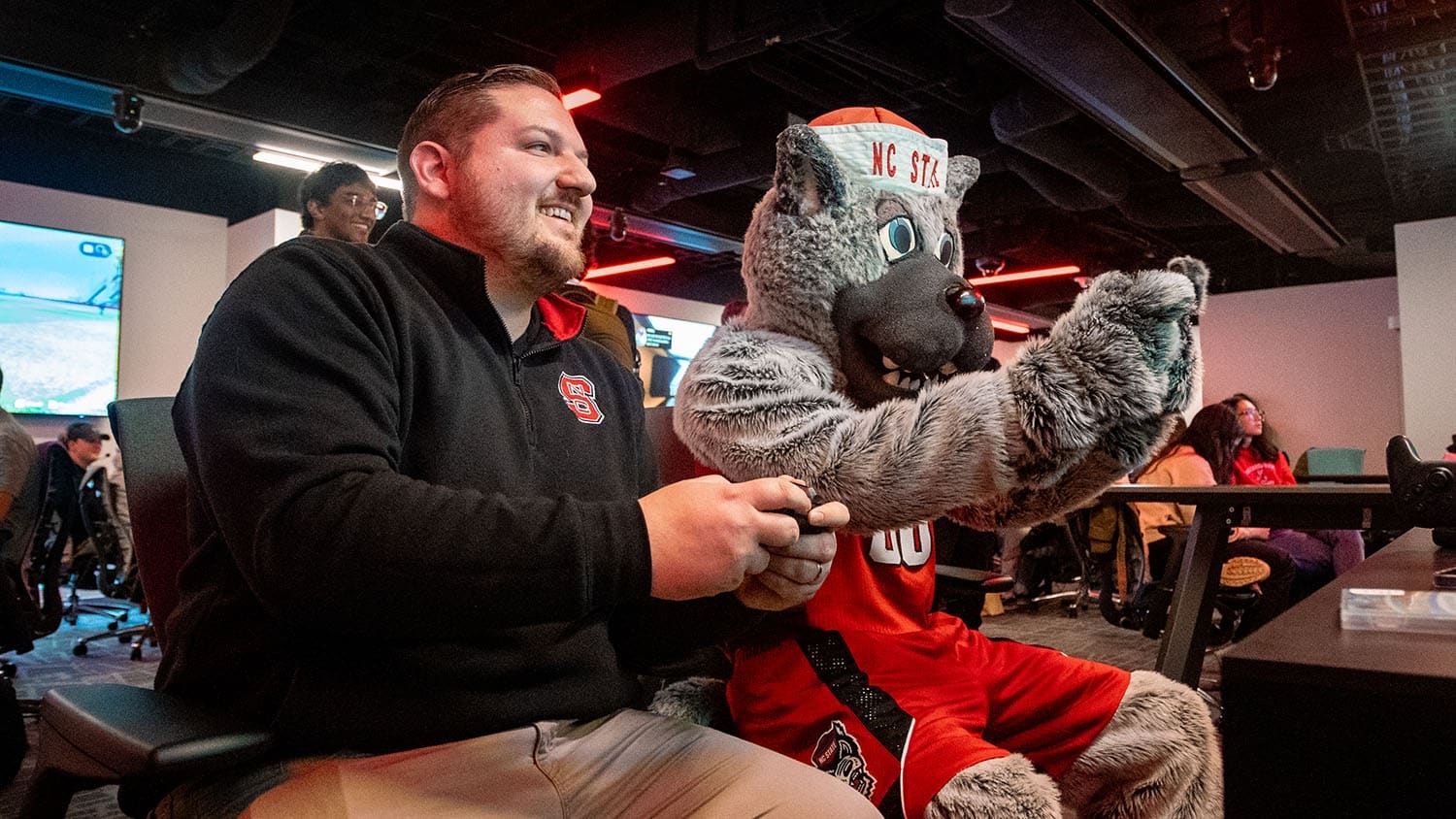Engineers across borders

Ciara Jones decided during her sophomore year at Richlands High School in eastern North Carolina that she wanted to study aerospace engineering. But until the summer between her freshman and sophomore years at NC State, she had never actually flown in an airplane.
“I love them, but I’m not in them,” she said.
That changed on May 16, when Jones and a group of fellow students began a 19-hour trip from Raleigh, NC to Beijing, China.
As an early-morning American Airlines flight rumbled down the runway at Raleigh-Durham International Airport, Jones covered her mouth with her hands as if in prayer. Friends Kaylee Saaranen and Chandra Manivannan, seated across the aisle, had spent time as the airplane taxied away from the terminal trying to help with her apprehension.
As the jet broke free from gravity’s constraints and began its climb over the Triangle suburbs, Jones breathed a sigh of relief.
Everyone laughed when Jones said “Oh my god. I feel closer to Jesus already.”
Started 10 years ago, NC State’s annual study abroad trip to Zhejiang University in Hangzhou was revived in 2016 after a three-year hiatus. Though the trip is open to students from all colleges on the NC State campus, it has long had a strong engineering presence. Most of the group was made up of engineering majors, but they were joined by students from the Poole College of Management and the College of Humanities and Social Sciences.
The program offers students a journey outside of their comfort zone. While two of the 25 students on the 2017 trip had not flown before, several others had never traveled outside of the United States.
Students spend five weeks living and attending classes in the International College at Zhejiang University. Along with seeing the sites in this green, vibrant city known for its beautiful scenery and burgeoning technology sector, students also experience Beijing, Huangshan (Yellow) Mountain and Shanghai during their 42 days away.
For engineering students, the program offers a unique chance to work side by side with Chinese engineering students on a design project for an international company with a manufacturing facility in China.
Apart from taking summer-session classes that count toward graduation, they are immersed in a culture completely apart from their own. The students quickly bonded as they worked as a group to figure out how to shop for groceries, where to eat and how to do laundry. They searched for good wi-fi and coffee, tried to overcome the language barrier and figured out how to access their university Gmail-based student e-mail accounts in a country that blocks access to Google.
“I think a trip like this can be an eye-opener for a lot of students,” said Dr. Jeffrey Eischen, associate professor and director of undergraduate student affairs in the Department of Mechanical and Aerospace Engineering (MAE) and one of the faculty members involved in the program. “It gives them a larger view of the world.”
The program is partially supported by revenue generated from the College’s Engineering Enhancement Fee. The fee, introduced in 2015, helps fund enhancements to the learning experience for undergraduate and graduate students in engineering and computer science as the College deals with reductions in state funding.
College leaders believe that this is one initiative that can help move the College from a good engineering school to a great one and help make its graduates not just great technical thinkers, but engaged global citizens who can thrive in an economy that knows few borders.
Beijing and beyond
Sporting travel neck pillows and bleary eyes, a somewhat dazed group arrived at Beijing Capital International Airport on Wednesday, May 17, with multiple suitcases in tow. Boarding a tour bus, they got their first look at the enormity of Beijing.
Jiang Chao Yi, the group’s tour guide, asked to be called Joey because it’s a close translation of his first name. He explained that, just as in the United States, this city of 30 million people has developed rings as growth necessitates a new circular highway, then another as the growth moves further out. Beijing has six such rings.
Dr. Clifford Griffin, associate professor of political science and director of the program, reminded students that the university’s code of student conduct is in effect on the trip and asked that the students be mindful that they are in a different country with a different culture and that they be respectful of that culture.
The next day, the group visited Tiananmen Square and the Forbidden City, the Chinese Imperial Palace from the 15th century through the early 20th century. Then it was on to a section of the Great Wall outside of Beijing, where the students spent more than two hours scaling the steps of a particularly steep section of the wall that climbed up and over a mountain.
Along the way, students were exposed to authentic Chinese cuisine and learned to use chopsticks.
“You’ve got to go for the big chunks of rice,” Liam Truong, a rising sophomore from Charlotte studying nuclear engineering told the students at his table during one lunch. “The bigger the chunk, the easier it is to pick up.”
As the group traveled out of Beijing to tour the Great Wall, Jalen McGee, a sophomore from Durham, NC studying electrical and computer engineering, talked to Joey about the differences between higher education in China and the United States. Saaranen, another rising sophomore from Raleigh who had not decided which engineering department to join, watched the scenery pass by outside the bus window and reflected on how far she had traveled.
“I never imagined myself going to China my first year in college. But here I am.”
Just like home
The group left Beijing on a high-speed train to Hangzhou, a trip that took just six hours to travel 800 miles at speeds of up to 186 mph. They settled into the international dorm at Zhejiang University amongst Chinese, French and American students.
Some of them were already friends or at least recognized each other from classes they had taken back in Raleigh. Others they had met only twice, during two orientation sessions that had taken place in early spring where Griffin walked the students and a smattering of parents through the process of applying for a passport and Chinese visa and what to pack. Griffin, who has been a part of the program since 2008 and director since 2012, talked about how the group would stay safe, what they shouldn’t eat or drink and how to negotiate prices for gifts to take back home to loved ones.
“I have learned to do the walk away,” he said, mimicking his tough negotiating style.
With the beginning of classes the following Monday, the students settled into a daily routine not unlike what they were used to in Raleigh. They attended classes in the morning and spent the rest of the day reading, studying, exercising or exploring the city.
A cluster of businesses right across the street from the dorm, including a bakery, coffee shop, fruit stand and convenience store, provided most of what they needed on a daily basis. More coffee shops and restaurants (including one that served cheeseburgers, pizza and Mexican food) and even a Wal-Mart were available within a 10-minute walk. Mindful of the faculty members’ requests that they go out in groups both for safety and to ensure that quieter students were not left out, the students used a text messaging app called GroupMe to coordinate meals, study sessions or grocery runs. Many rented bicycles, fitting into the local culture and gaining an economical way to explore their surroundings.
Students could take a class in basic Mandarin taught by a Zhejiang faculty member and choose two of three classes taught by NC State faculty members who traveled with the group. Griffin’s Introduction to International Relations class examined how and why countries work together. Lisa Marshall, a lecturer and advisor in the Department of Nuclear Engineering who also serves as the department’s director of outreach, retention and engagement, taught Geographies of Energy — “How a nation assesses resources and why a nation does what it does with energy sources,” she told the class on the first day. Both classes touched heavily on China but other countries as well.
Dr. Laura Bottomley — a professor of electrical engineering and director of the College’s Women in Engineering program and The Engineering Place, the College’s K-20 engineering education program — referred to her Electrical Engineering 331 class as “circuits for nonbelievers.” Using hands-on demonstrations of how electric circuits are built and work, it was designed to appeal and be useful to students in civil, mechanical and other engineering programs.
Bottomley, who traveled to Hangzhou for the first time in 2017, led the students’ interaction with Chinese engineering students and Apex, NC-based Caterpillar Machine Design Center.
Project-based approach
Dr. Carl Zorowski wasn’t planning on going to China in 2007.
Zorowski, Reynolds Professor Emeritus in the Department of Mechanical and Aerospace Engineering, was having lunch with an engineering faculty associate who had wanted to travel on the first study-abroad trip to Hangzhou following NC State’s signing of a cooperative agreement with Zhejiang University. But he didn’t have a passport, and it was too late to get one.
Zorowski had a passport and had been to China before. He and his wife, Louise, were soon making plans for a trip, along with faculty members from political science and management and 17 students.
“The first year we were there we were basically trying to figure out where the bathroom was and how to live in China,” he said.
But the program grew stronger year by year. After giving an invited lecture at Zhejiang, Zorowski met Professor Gu Daqiang, a member of the faculty in the Department of Mechanical Engineering. Both had an interest in teaching classes that were project-based. What if Zorowski offered the Mechanical Design Engineering course he taught in Raleigh to both NC State and Zhejiang students?
“We had a lot in common in our educational goals,” Zorowski remembers. “Conversation was initially difficult. Prof. Gu spoke only a little English and I no Chinese. With the help of an NC State graduate student, Sonny Wong, serving as translator we did agree to collaborate on offering a combined NC State – Zhejiang engineering design class the following year.”
In 2009, NC State engineering students worked with their Chinese colleagues to redesign a component on a front-end loader manufactured by Caterpillar, Inc. at the company’s facility in the city of Suzhou.
“The thing that most pleased me was that Caterpillar actually adopted one of the students’ designs, and if you look at a Caterpillar front-end loader today you will see that student’s design,” Zorowski said.
The collaborations with Caterpillar have been part of the trip ever since, with Eischen taking over teaching of the course from Zorowski and Bottomley joining after being recruited by Marshall. Students now visit a newer Caterpillar facility in the city of Wujiang, a couple of hours from Hangzhou by bus.
In 2017, the engineering course offered to students was in electrical engineering rather than mechanical, but the work with Caterpillar continued; Bottomley and her students were asked to develop a lightning detector for Caterpillar equipment so that operators on a construction site would know when an approaching storm was close enough for them to stop work.
Each year, the students present their completed projects to Caterpillar engineers, who both attend physically in China and virtually from Clayton, NC.
It’s a tremendous experience for today’s engineering students. Even if they aren’t traveling overseas in their jobs, Zorowski said, they will likely be working digitally with colleagues overseas, overcoming language barriers, dealing with time-zone differences and learning how to collaborate on complex tasks using email and video conference calls when they can’t be in the same room.
It’s also a more enriching undertaking than many university study abroad programs in which students might be physically located in another country but are only interacting with each other and the professors who traveled with them.
“You’re there with your group, but you may not get a lot of that experience of actually working on a project with the local people,” Eischen said.
Here for the experience
Most of the engineering students on the Hangzhou trip recognized the need for international experience to prepare them for a career as a 21st-century engineer.
Many preferred a study abroad trip during the summer rather than one that would take up an entire semester during the academic year. Add to that the fact that the classes offered were ones that many of the students needed to graduate.
McGee, the sophomore in electrical engineering from Durham, found a mentor in Bottomley while attending engineering summer camps in high school. It helped lead him to NC State and on the trip.
Others were convinced after talking to Griffin about the benefits of the trip. Or they had friends who were interested in the program and encouraged them to sign up.
Six of the students are part of the Goodnight Scholars program started by NC State alumnus and SAS founder Dr. Jim Goodnight. Their scholarship includes funding to study abroad.
The group included six NC State students who were born in China. Several took the opportunity to visit home either before or after the trip. Their language skills and familiarity with Chinese culture were an invaluable asset for the rest of the group.
Several said they were interested in seeing what university life in China would have been like had they stayed in their native country.
Ben Jiang first came to the United States as a junior in high school to live with a family in Indiana as an exchange student. He is now a junior at NC State studying electrical engineering. He left Raleigh right after spring semester finals to visit family in Nanjing, China and then met his fellow students after they had arrived.
“For me, it’s not like study abroad,” Jiang said. “It’s study and come home.”
Doug Moore, a junior from Rocky Mount, NC studying civil engineering, said he thought traveling to China would provide a broader cultural experience than a trip to western Europe.
That seemed to interest Evan Grant, a sophomore in mechanical engineering from Cullowhee, NC as well.
“I have never been abroad before so I wanted to do the extreme and go to a country where I didn’t speak the language and it’s on the other side of the world,” he said.
Return to contents or download the Fall/Winter 2017 NC State Engineering magazine (PDF, 6.8MB).
- Categories:


